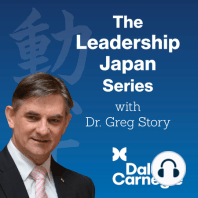18 min listen
188: Buying People
ratings:
Length:
11 minutes
Released:
Feb 1, 2017
Format:
Podcast episode
Description
Buying People When we buy a company, we are buying the people and all the “assets” - plant and equipment come with them, rather than the other way around. The due diligence gets done, the books are looked at carefully for any signs of “cooking”. Hidden debts, secret undertakings, compliance and regulatory issues are scrutinized. The people part however is given a “once over lightly” look because this is much harder to do thoroughly, than the other investigations. HR can tell us a lot about the structure of the pay arrangements, who are the high potentials, previous performance review results and the current staffing levels. Gauging staff productivity however is much more obtuse. The silly part though is that this is exactly what we are buying – staff productivity. Often, the perceived productivity gap is “fixed” by firing staff to reduce costs and at the same time drive the leaders to push the team harder for higher revenues. This scenario usually doesn’t happen straight away. It takes time to get a sense of how things work, who are the “A” players etc. At the point of purchase though it is very hard to know these things. So having paid the money and received the company, how can the staff be engaged? They have loyalty to the old regime and people. As we know, if the handover is not done well, the first out the door are the good people. They are quick to go because they have options and can easily find another job. Recruiters get very excited when there in an acquisition because they know they will pick up good quality candidates fleeing the carnage. The top 20% of any organisation will be producing 80% of all the good things we wanted when we bought the company. The transition has to be handled well or we will lose the best people. The key producers have to be identified quickly and what they want ascertained, to ensure they remain deaf to the siren calls of the recruiters. These early conversations are vital and need to be authentic. People can spot spin very quickly in these tense times. In short order, expect there will be a swarm of recruiter worker bees buzzing around the organisation, so there is plenty of temptation for insiders to depart. Once key people leave the others remaining worry those who left know something everyone else doesn't know. Rumors fill the vacuum if there are not great efforts to control the narrative of the change over and bright future at the firm. An organisation I know well is experiencing that. The new management brought in some harsh measures to lift the profits and the diaspora got underway immediately. The best people were soon safely ensconced in their rivals organisations, taking the long held client relationships with them. The organisation, which had been a profit machine is now falling apart. Those who are not in the top group are often rapidly disenfranchised once the firings start. They cannot gauge when their turn for the chop will come and they don’t have super confidence to find another good job, so they spend all of their time worrying and trying to foster the appearance of work. They rapidly become brilliant “Yes” men and women trying to survive. Their focus is on internal organisational politics and trying to find protectors. The existing finely balanced internal order breaks down as people leave, new people are brought in and the zero sum game triggers old rivalries and battles between divisions and individuals. The whole focus shifts off the competitors out in the market to fighting with internal rivals. The client or customer is now a long way down the list of interests. The concept of investing in the people is not well developed in these situations. The HR team are engrossed in the amalgamation process and everything else is suspended until the mechanics are completed. When they do finally come up for air they are asked to nominate who can go, to reduce the duplication across the common functions. Next come the firings and that saps the energy, spirit and job
Released:
Feb 1, 2017
Format:
Podcast episode
Titles in the series (100)
19: Motivational Leadership: japan.dalecarnegie.com by The Leadership Japan Series
